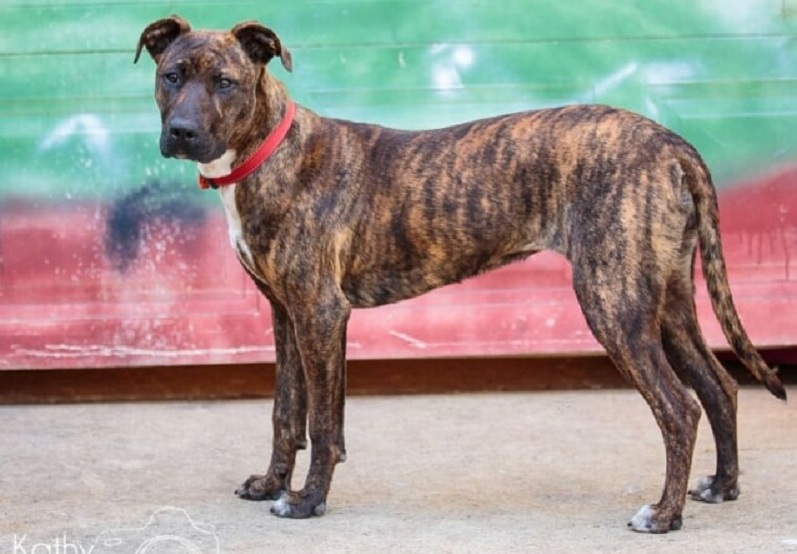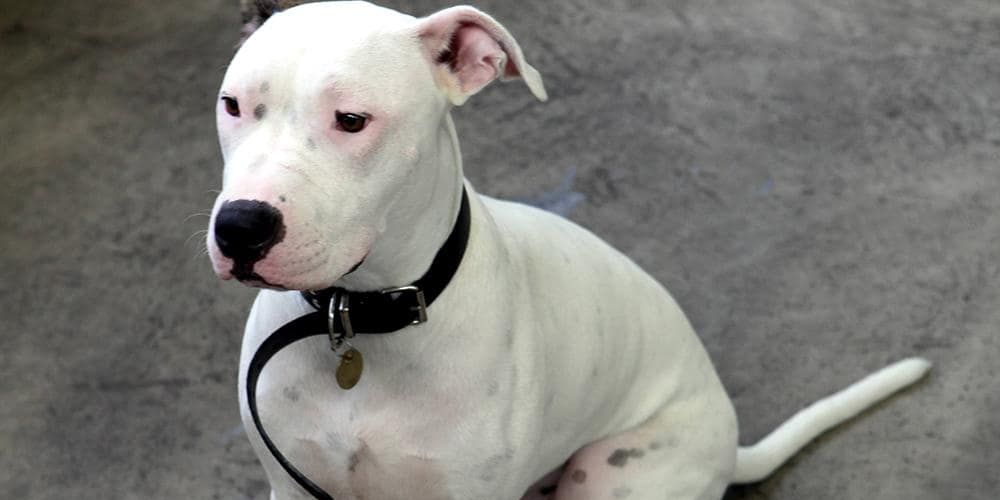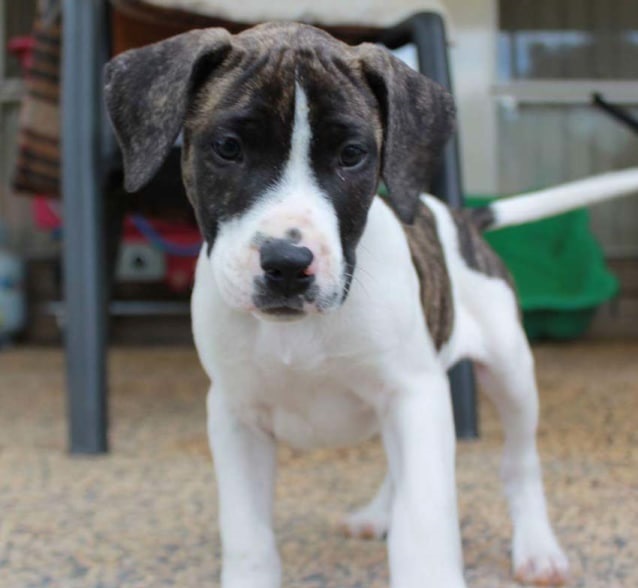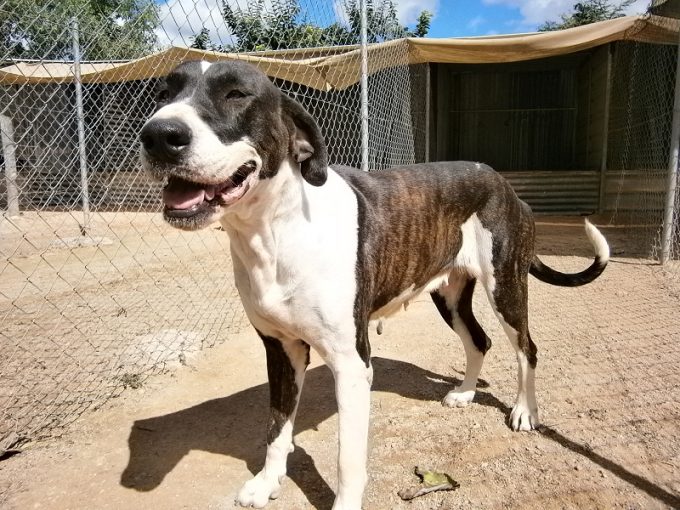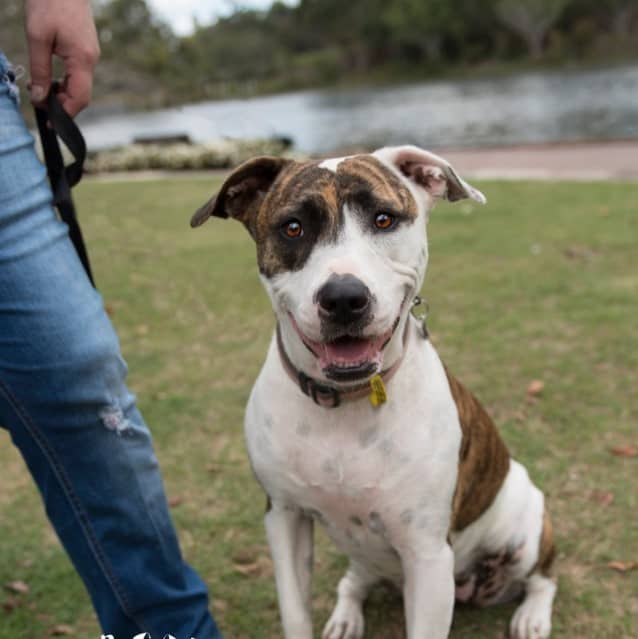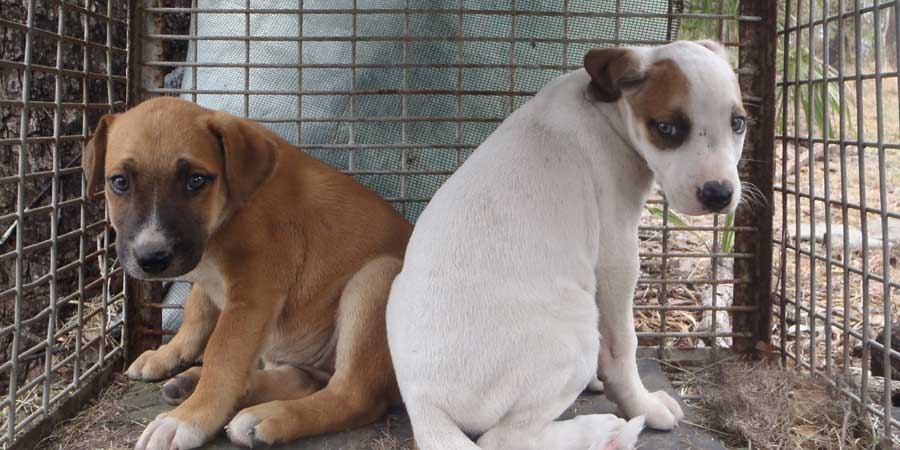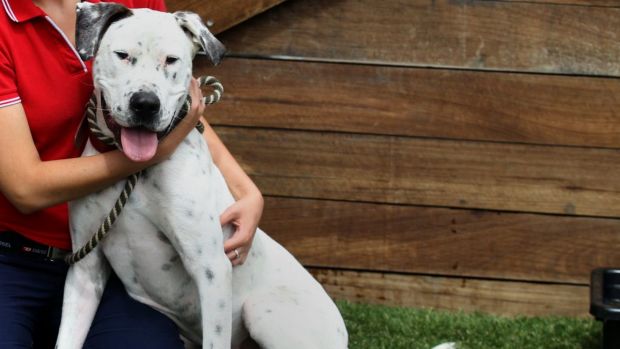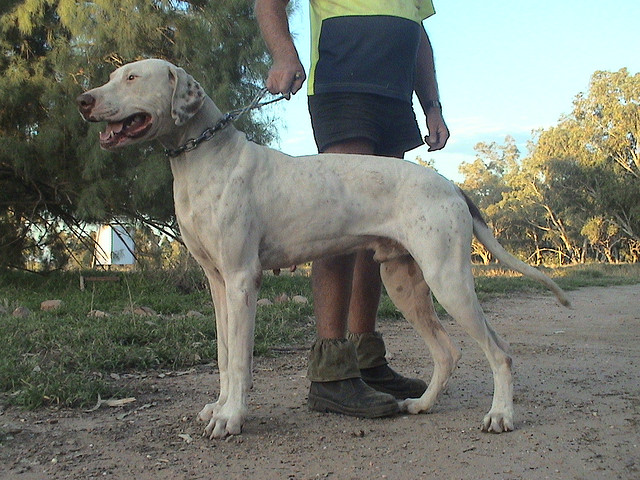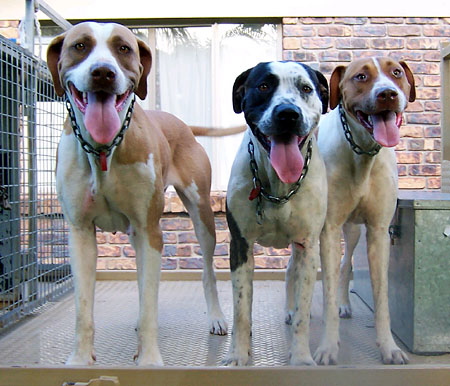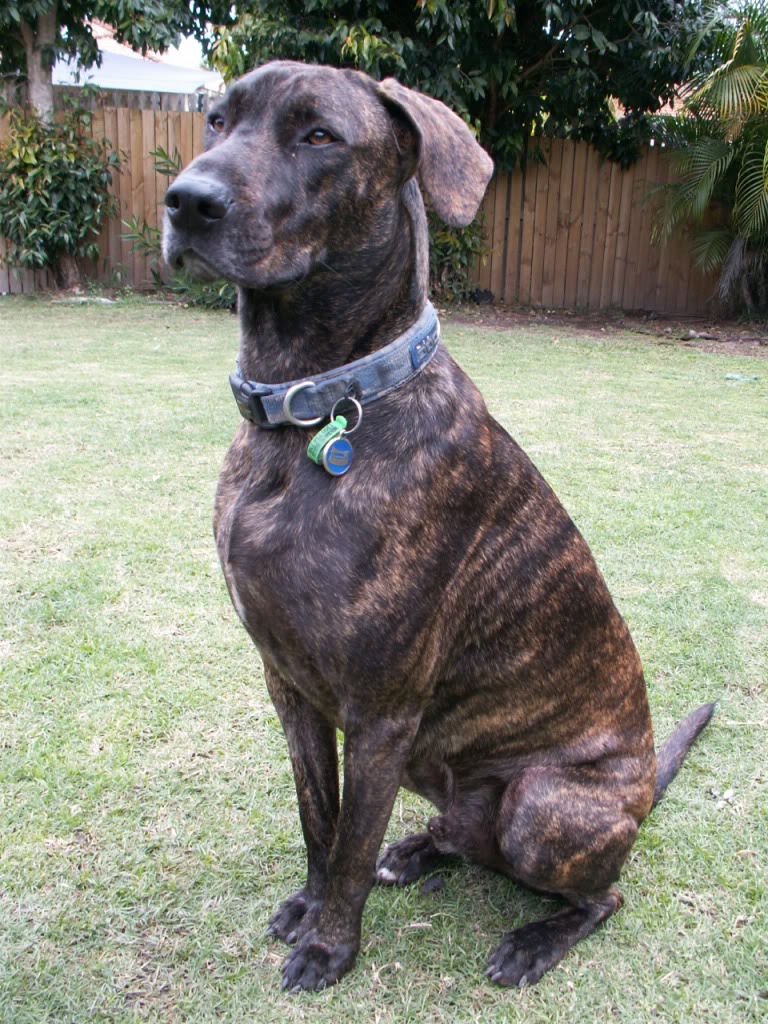Bull Arab
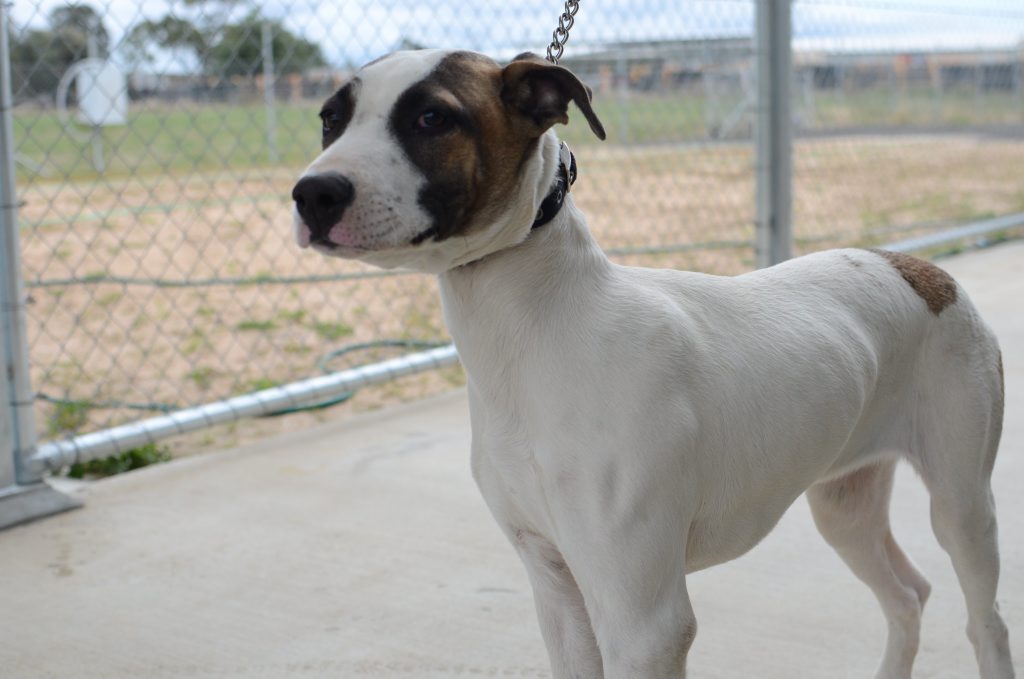
Overview
The Bull Arab is a mix of several dog breeds, including the Bull Terrier, Greyhound, German Pointer, and English Pointer. Other breeds that have also contributed to its development include the Mastiff, Doberman, and Great Dane.
These are large, strong dogs with powerful hunting instincts, especially when it comes to hunting wild boars, so they require daily exercise. Continue reading this Better-Pets.net section to learn about the origin, temperament, characteristics, care, training, health, and adoption options for the Bull Arab dog breed.
Origin of the Bull Arab
Bull Arab dogs originated in Australia in the 1970s. They were bred for work and wild boar hunting. They are also known as the Australian Pig Dog, BA, or Arab. The breed is particularly distinguished by its excellent sense of smell, capable of detecting boars up to 6 km away.
This breed was created by breeder Mike Hodgens, who sought a large dog with strength, speed, and excellent tracking ability, ideal for hunting. However, he stopped breeding them in the 1980s. Since then, other breeders have continued the lineage.
Traditionally, it is believed that the Bull Arab is 50% Bull Terrier for its bite strength, 25% Greyhound for vision and speed, and 25% German Pointer or English Pointer for scent and intelligence. Other theories suggest that the breed is a mix of Mastiff and Great Dane or Bull Terrier and Doberman.
Characteristics of the Bull Arab
Bull Arabs are large dogs, with males standing 63-69 cm tall and females 61-66 cm tall. Their weight ranges from 32 to 42 kg. These dogs have strong proportions, a robust, straight back, and a slightly arched, strong, medium-length neck.
Other Physical Features:
- Head: Medium-sized
- Eyes: Bright and matching the coat color
- Ears: Medium-sized and floppy
- Hind Legs: Strong for fast hunting sprints
- Feet: Oval-shaped with arched toes
- Tail: Tapers at the end and is proportional to the body
- Coat: Short and smooth, with a light double coat in cold climates
Bull Arab Coat Colors
The breed’s coat is predominantly white or cream with darker markings, but it can also come in the following shades:
- Red
- Black
- Liver with a red nose
- Fawn
- Silver
- Blue
- Brindle
- Tan
Temperament of the Bull Arab
Bull Arabs are active, loyal, friendly, and independent. They have a good temperament and get along well with children and strangers. These dogs are generally calm and well-balanced if they receive their daily dose of exercise and activity, as they are bred for hunting.
Despite being calm and loyal dogs, they have a reputation for aggression in Australia due to certain reported attacks on people. However, the Mackay Regional Council states that this bad reputation stems from poorly socialized dogs rather than the breed itself.
Training the Bull Arab
Training an Bull Arab should not be overly difficult, as they are highly intelligent and trainable dogs. However, their strong hunting instincts should be carefully managed.
From 8 weeks old, they should be introduced to people, situations, and experiences to ensure proper socialization, which is key to their future temperament. The best training approach is positive reinforcement, which ensures a quick and stress-free learning process, leading to more effective results.
Care for the Bull Arab
Bull Arabs require a lot of daily physical activity, so their owners must ensure they get enough exercise and movement every day.
Essential Care Needs:
Balanced Diet: Tailored to the dog's age, metabolism, environment, and physiological condition to meet daily energy needs.
Internal and External Deworming: To prevent parasite-related diseases and the transmission of other pathogens.
Regular Vaccination: To protect against common infectious diseases.
Coat Grooming: Occasional brushing as needed.
Bathing: Only when the coat is dirty or requires shampoo treatment.
Health of the Bull Arab
The average lifespan of an Bull Arab is 12-15 years. This breed is generally strong and healthy, provided they receive regular veterinary checkups, preventive care, and proper nutrition.
Common Health Issues:
Epilepsy: A neurological disorder causing increased electrical activity in the brain, leading to spontaneous seizures that may involve tremors, convulsions, and possible loss of consciousness.
Cataracts: Clouding of the eye's lens, which can be partial or complete and may cause blindness.
Primary Lens Luxation: A condition where the ligaments holding the lens weaken or break, causing vision problems or blindness, usually occurring between 3 to 6 years of age.
Gastric Dilatation-Volvulus (Bloat): These dogs are prone to stomach bloating, particularly after eating and exercising. If the stomach twists (torsion), it can cause severe clinical signs, including excessive drooling, respiratory distress, loss of appetite, unproductive vomiting, severe abdominal pain, and collapse.
Cryptorchidism: A condition where one or both testicles fail to descend into the scrotum, remaining in the abdomen or groin. If untreated, it can lead to testicular torsion or cancer.
Where to Adopt an Bull Arab
Bull Arabs are native to Australia and rarely found elsewhere, making adoption challenging. Before adopting one, consider whether you have the time and energy to provide the necessary daily exercise and training for this high-energy breed.
If you are sure about adoption, start by checking local shelters and rescues. If none are available, ask about breed-specific rescue organizations, especially those that specialize in its parent breeds (such as Bull Terriers, Greyhounds, or Pointers). They may provide guidance on where to find an Bull Arab for adoption.
Breed Information
| Popularity: | # |
| Origin: | Australia |
| Breed Group: | None |
| Size: | Large |
| Type: | Cross Breed |
| Life span: | 12-15 years |
| Temperament: | Active Independent Tempered Kind |
| Height: | Male: 25-27 inches (63–69 cm) Female: 24-26 inches (61–66 cm) |
| Weight: | 70.5-92.5 pounds (32-42 kg) |
| Colors: | Black Blue Brindle Liver Red Silver Tan |
| Litter Size: | 8-10 puppies |
| Puppy Price: | Average $300 - $400 USD |
Breed Characteristics
| Adaptability: |
|
| Apartment Friendly: |
|
| Cat Friendly: |
|
| Child Friendly: |
|
| Grooming: |
|
| Health Issues: |
|
| Intelligence: |
|
| Trainability: |
|
| Watchdog Ability: |
|
Dog names
| Rank | Male | Female |
|---|---|---|
| 1 | Rocky | Sadie |
| 2 | Duke | Sophie |
| 3 | Riley | Stella |
| 4 | Dexter | Zoe |
| 5 | Murphy | Ruby |
| 6 | Baxter | Piper |
| 7 | Gus | Lulu |
| 8 | Marley | Maddie |
| 9 | Simba | Phoebe |
| 10 | Boomer | Minnie |
| 11 | Hunter | Willow |
| 12 | Ace | Sugar |
| 13 | Prince | Fiona |
| 14 | Chester | Madison |
| 15 | Brady | Penelope |


